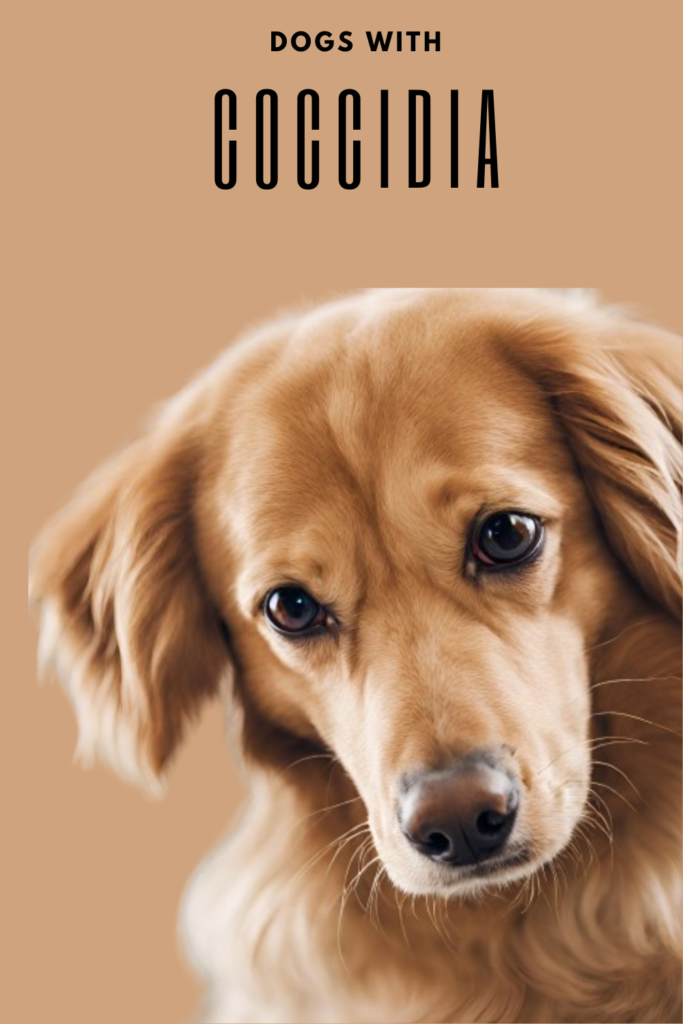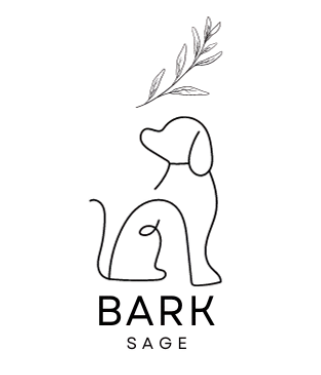
Did you know that coccidia, an intestinal parasite, affects millions of dogs worldwide? This microscopic organism, known as coccidia, can cause a range of health issues in our furry friends, including diarrhea and discomfort. Understanding the symptoms and treatment options for coccidia infection is crucial to ensure your dog’s well-being.
Key Takeaways:
- Coccidia is a common intestinal parasite that affects dogs worldwide.
- Symptoms of coccidia infection include diarrhea and gastrointestinal discomfort.
- Proper diagnosis through fecal flotation tests is essential for accurate treatment.
- Treatment options for coccidia in dogs include medication and dietary changes.
- Preventive measures such as maintaining a clean environment and practicing good hygiene can reduce the risk of coccidia infection.
What is Coccidia?
In this section, we will discuss what coccidia is and how it affects dogs. Coccidia are microscopic parasites that live in the intestinal tract of infected animals, including dogs. These parasites are commonly found in dog feces and can be transmitted through direct contact with contaminated feces or ingestion of sporulated oocysts.
The life cycle of coccidia involves the production of oocysts, which are shed in the feces of an infected dog. These oocysts can survive in the environment and can sporulate, becoming infectious to other dogs or animals. When puppies or dogs come into contact with the infected feces, they can ingest these sporulated oocysts, leading to infection.
There are different species of coccidia that can affect dogs, with Isospora spp and Eimeria spp being the most common. These parasites primarily target the intestinal tract, causing damage to the lining and resulting in clinical coccidiosis.
Proper diagnosis of coccidia in dogs is essential for effective treatment. Veterinarians often perform fecal flotation tests to identify the presence of the parasite’s oocysts in the dog’s feces. This diagnostic method allows for the detection and quantification of coccidia, aiding in the determination of appropriate treatment options.
“Coccidia are microscopic parasites that live in the intestinal tract of infected animals, including dogs.”
Common Coccidia Species in Dogs
| Coccidia Species | Location | Clinical Significance | |——————|———-|———————–| | Isospora spp | Intestinal Tract | Most common coccidia in dogs, causing diarrhea and intestinal inflammation. | | Eimeria spp | Intestinal Tract | Can cause clinical coccidiosis, especially in young puppies with weaker immune systems. |
Understanding the nature of coccidia and how it affects dogs is vital in preventing and managing infections. In the following sections, we will explore the symptoms, diagnosing methods, treatment options, and preventive measures for coccidia in dogs.
Symptoms of Coccidia in Dogs
When your beloved furry companion is infected with coccidia, it’s important to recognize the symptoms and seek appropriate treatment. Coccidia infection can manifest in various ways, ranging from mild to severe. Keeping a watchful eye on your dog’s health can help identify the signs early on.
One common symptom of coccidia infection is watery diarrhea. You might notice that your dog’s stool becomes loose and runny, potentially leading to dehydration if left untreated. In severe cases, the diarrhea can become bloody, indicating a more advanced infection.
If you notice that your dog’s feces is infected with coccidia, it’s crucial to take immediate action. The parasites can be passed through the feces of an infected dog or an animal that carries the infection. For young puppies, coccidia can be particularly dangerous, as their immune systems are still developing.
Key symptoms of coccidia infection in dogs:
- Watery diarrhea
- Bloody diarrhea in severe cases
- Infected feces
- Weakened or lethargic behavior
- Poor appetite or weight loss
- Vomiting
It’s important to note that the symptoms of coccidia infection can be similar to other parasitic infections, such as giardia. If your dog exhibits any of these symptoms, it is essential to consult a veterinarian for an accurate diagnosis.
“Watery diarrhea and infected feces are common signs of coccidia infection in dogs. Early detection and proper treatment are crucial for your furry friend’s well-being.”
When it comes to older dogs, while they can also be affected by coccidia, they generally exhibit milder symptoms. However, their immune systems may be weaker, making it important to seek veterinary care if any signs of infection arise.
Remember, preventing coccidia infection in the first place is always better than dealing with its consequences. Maintaining good hygiene practices, such as regularly cleaning your dog’s living environment and properly disposing of infected feces, can significantly reduce the risk of infection.
| Symptoms | Description |
|---|---|
| Watery diarrhea | Loose and runny stool, indicating an infection |
| Bloody diarrhea in severe cases | Advanced infection leading to the presence of blood in the stool |
| Infected feces | Feces containing coccidia oocysts |
| Weakened or lethargic behavior | Lack of energy or decreased activity levels |
| Poor appetite or weight loss | Reduced interest in food and unintentional weight loss |
| Vomiting | Expelling the stomach’s contents forcefully |
Diagnosing Coccidia in Dogs
When it comes to diagnosing coccidia in dogs, there are several methods that veterinarians employ to accurately identify this microscopic parasite. These methods involve a combination of microscopic examination of fecal samples and the observation of clinical symptoms associated with coccidiosis. Let’s explore these approaches in detail.
Microscopic Examination of Fecal Samples
One of the most common techniques used to diagnose coccidia is fecal flotation. In this procedure, a small amount of fecal matter is mixed with a special solution that allows the coccidia oocysts to float to the surface. The sample is then examined under a microscope to identify and count the oocysts.
This diagnostic method not only confirms the presence of coccidia but also helps determine the severity of the infection. It provides valuable insights into the species of coccidia affecting the dog, enabling veterinarians to tailor the treatment accordingly.
Here is an example of how fecal flotation results are presented:
| Coccidia Species | Quantity Detected | Disease Severity |
|---|---|---|
| Isospora spp. | High | Moderate |
| Eimeria spp. | Low | Mild |
Clinical Symptoms of Coccidiosis
Since coccidiosis can present with a range of symptoms, the clinical observation of these signs is crucial in the diagnostic process. Symptoms such as diarrhea, dehydration, weight loss, and poor appetite can indicate a coccidia infection. However, it’s important to note that these symptoms can be seen in other illnesses as well, so further diagnostic testing is necessary for a confirmed diagnosis.
“Proper diagnosis is essential for effective treatment and management of coccidia in dogs. Understanding the different diagnostic methods helps veterinarians develop tailored treatment plans and enhance the overall well-being of our furry friends.” – Dr. Amanda Johnson, Veterinary Medicine Specialist
By combining fecal flotation results with clinical observations, veterinarians can make an accurate diagnosis of coccidiosis and determine the appropriate course of treatment. Additionally, these diagnostic methods also aid in ruling out other potential causes of similar symptoms in dogs, ensuring a comprehensive approach to their healthcare.
Treatment Options for Coccidia in Dogs
When it comes to treating coccidia in dogs, there are a variety of options available to effectively combat this intestinal parasite. The treatment approach may vary depending on the severity of the infection and the overall health condition of the dog. Here are some common treatment methods:
- Medication: Anti-coccidial medications are often prescribed by veterinarians to kill the coccidia parasite. These medications may come in the form of oral tablets or liquid suspensions. It is essential to strictly follow the prescribed dosage and duration of the medication for the best results.
- Dietary changes: In addition to medication, dietary modifications can play a crucial role in treating coccidia. Your veterinarian may recommend a specialized diet that supports the dog’s digestive health and aids in reducing the severity of diarrhea caused by coccidia. It is important to follow the dietary guidelines provided by the veterinarian to ensure optimal recovery.
- Hygiene and sanitation: Proper hygiene and sanitation practices are vital in preventing reinfection and minimizing the spread of coccidia in your dog’s environment. Regularly clean and disinfect your dog’s living area, food and water bowls, and toys. Dispose of infected feces promptly and avoid contact with contaminated surfaces.
It’s important to note that coccidia treatment should be carried out under the guidance of a veterinarian to ensure the safety and well-being of your dog. Your veterinarian will assess the severity of the infection and develop a tailored treatment plan that best suits your dog’s individual needs.
Preventing Coccidia in Dogs
To reduce the risk of coccidia infection in your beloved furry friend, there are several preventive measures you can take. By implementing these steps, you can help safeguard your dog’s health and well-being.
Maintain a clean environment: Keeping your dog’s living space clean is essential in preventing the spread of coccidia. Regularly clean and disinfect their bedding, toys, and food bowls. Additionally, ensure that the area where your dog eliminates is properly cleaned to minimize the risk of exposure to infected feces.
Practice proper hygiene: Practicing good hygiene not only protects your dog but also reduces the chances of contracting coccidia yourself. Always wash your hands thoroughly after handling your dog, especially if they have been in contact with other animals or potentially contaminated areas.
Consider pet insurance: Investing in pet insurance can provide financial support in case your dog requires treatment for coccidia or other health issues. It can give you peace of mind knowing that the cost of veterinary care is covered, enabling you to prioritize your dog’s well-being without hesitation.
Provide a balanced diet: A healthy and balanced diet is crucial for supporting your dog’s immune system, helping them fight off infections like coccidia. Consult with your veterinarian to ensure your dog’s diet is nutritionally adequate and appropriate for their age and breed.
Limit exposure in high-risk areas: Certain environments, such as dog parks and areas with a high concentration of animals, may pose an increased risk of coccidia transmission. Consider limiting your dog’s exposure to these areas, especially if they are a young puppy or have a weakened immune system.
By following these preventive measures, you can significantly reduce the risk of coccidia infection in your furry friend. Remember, a clean environment, proper hygiene, and a balanced diet are key in maintaining your dog’s overall health and well-being.
| Preventive Measures | Description |
|---|---|
| Maintain a clean environment | Regularly clean and disinfect your dog’s living space and eliminate areas to reduce the risk of exposure to infected feces. |
| Practice proper hygiene | Wash your hands thoroughly after handling your dog and practicing good hygiene to prevent the spread of coccidia. |
| Consider pet insurance | Invest in pet insurance to ensure financial support for your dog’s medical needs, including coccidia treatment. |
| Provide a balanced diet | Consult with your veterinarian to ensure your dog’s diet supports a strong immune system to fight off infections. |
| Limit exposure in high-risk areas | Avoid areas such as dog parks and environments with a high concentration of animals to minimize the risk of coccidia transmission. |
Implementing these preventive measures will go a long way in protecting your four-legged companion from coccidia infection and ensuring their continued health and happiness.
Conclusion
After exploring the symptoms, diagnosis, and treatment options for coccidia in dogs, as well as preventive measures, it is clear that understanding and addressing this intestinal parasite is crucial for your dog’s health. Coccidia infection can lead to diarrhea and other health issues, but with the right knowledge and proactive approach, you can minimize the risk of coccidia-related problems.
When it comes to diagnosing coccidia, veterinary professionals employ various methods, such as microscopic examination of fecal samples and clinical evaluations. Accurate diagnosis is essential to ensure appropriate treatment and management of coccidia infection.
Speaking of treatment, there are effective options available to combat coccidia in dogs. Medication, dietary changes, and maintaining proper hygiene all play a significant role in eliminating this parasitic infection. Additionally, implementing preventive measures, such as keeping your dog’s environment clean and ensuring a balanced diet, can further reduce the risk of infection.
By staying proactive and informed about coccidia in dogs, you can safeguard your furry friend’s well-being and enjoy a healthy and happy companionship. Remember, early recognition, prompt veterinary care, and preventive practices are key to protecting your dog from the dangers of coccidia.


